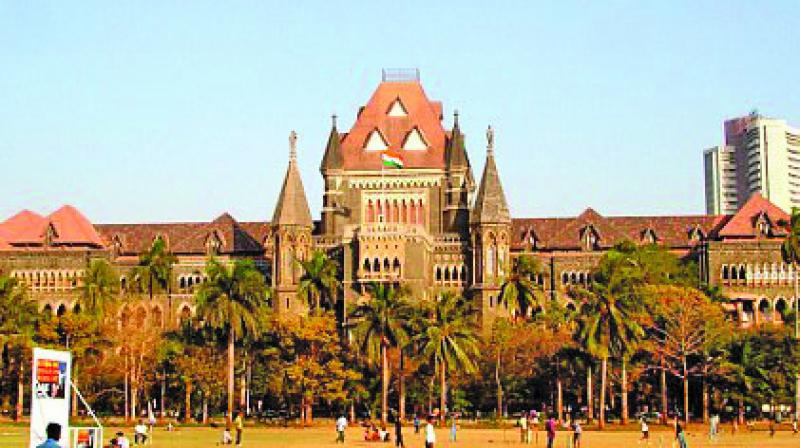
Bombay High Court: SEBI Consent Orders Cannot Erase Criminal Liability
Settlement Mechanism Limited to Regulatory Proceedings
Court Reinforces Investor Protection and Accountability in Securities Law
By Our Legal Reporter
New Delhi: November 18, 2025:
The Bombay High Court has ruled that a consent order passed by the Securities and Exchange Board of India (SEBI) cannot wipe out criminal liability under securities laws. The judgment clarifies that while SEBI’s consent mechanism allows parties to settle regulatory disputes, it does not override statutory provisions that mandate criminal prosecution for serious violations.
Also Read: Sunjay Kapur’s ₹30,000 Crore Will Sparks Legal Battle in Delhi High Court
This ruling is expected to reshape how companies, market intermediaries, and individuals approach settlements with SEBI, reinforcing the principle that regulatory settlements cannot be used as a shield against criminal accountability.
Background of the Case
The case arose from proceedings against the National Stock Exchange (NSE) and certain officials, who had entered a consent settlement with SEBI over alleged violations of securities regulations. The accused argued that since SEBI had accepted a consent order, criminal proceedings should not continue.
The Bombay High Court rejected this argument, ruling that criminal liability under securities law is independent of regulatory settlements.
Also Read: Delhi High Court Rules Lokpal Cannot Order Probe Without Hearing Public Servants
Court’s Observations
- Consent Orders Are Regulatory: SEBI’s consent mechanism is designed to settle regulatory disputes and avoid prolonged litigation.
- Criminal Liability Is Separate: Criminal offences under securities laws cannot be erased by consent orders.
- Public Interest: Allowing consent orders to override criminal liability would undermine investor protection and market integrity.
- Legislative Supremacy: Statutory provisions mandating prosecution cannot be diluted by regulatory settlements.
Also Read: Madras High Court Says Computer-Related Inventions Patentable If They Show Technical Contribution
The Case Title
Manoj Gokulchand Seksaria v. State of Maharashtra, Criminal Writ Petition No. 245 of 2020, decided on 15-11-2025].
Why This Ruling Matters
- Investor Protection: It ensures that individuals or companies cannot escape criminal liability simply by paying settlement amounts.
- Legal Clarity: The ruling provides clarity on the scope of SEBI’s consent mechanism.
- Market Integrity: It strengthens confidence in India’s capital markets by ensuring accountability.
SEBI’s Consent Mechanism Explained
SEBI introduced the consent mechanism to allow parties to settle regulatory disputes without admitting or denying guilt. This process helps reduce litigation and provides faster resolution.
Also Read: Punjab & Haryana High Court: No Pension Recovery Without Consent
However, the Bombay High Court has now clarified that consent orders are limited to regulatory proceedings and do not affect criminal liability under statutes such as the Securities Contracts (Regulation) Act, 1956, the SEBI Act, 1992, or the Indian Penal Code.
Impact on Companies and Market Participants
- No Immunity: Consent orders will not provide immunity from criminal prosecution.
- Greater Accountability: Market participants must ensure compliance with securities laws.
- Legal Strategy: Companies may need to reassess their approach to settlements with SEBI.
Also Read: Delhi High Court: Landlords’ Rights Under Rent Control Act Cannot Be Waived by Contract
Legal Experts React
- The judgment ensures that consent orders are not misused to escape criminal liability.
- It aligns India’s approach with global practices, where regulatory settlements do not override criminal law.
- Companies must now exercise greater caution in compliance and settlement negotiations.
Broader Implications
Also Read: Supreme Court: FIR Cannot Be Sustained for Other Offences If Some Are Quashed on Compromise
- Deterrence: It acts as a deterrent against violations of securities laws.
- Judicial Oversight: Courts will play a stronger role in ensuring accountability.
- Policy Reform: The government may revisit SEBI’s consent mechanism to align it with the court’s ruling.
Challenges Ahead
- Implementation: Ensuring consistent application across cases may take time.
- Litigation: Companies may continue to challenge criminal proceedings despite consent orders.
- Balance: Regulators must balance enforcement with ease of doing business.
Also Read: Ericsson Launches Patent Battle Against Transsion in India
Comparative Perspective
Globally, regulators such as the US Securities and Exchange Commission (SEC) and the UK Financial Conduct Authority (FCA) also use settlement mechanisms. However, these do not erase criminal liability, which is pursued separately by law enforcement agencies.
The Bombay High Court’s ruling brings India’s approach in line with international standards.
Conclusion
The Bombay High Court’s ruling that SEBI consent orders cannot erase criminal liability is a landmark in India’s securities law. By clarifying the limits of regulatory settlements, the court has strengthened investor protection and market integrity.
This decision will influence how companies and individuals approach settlements with SEBI, ensuring that accountability remains central to India’s capital markets.
GEO Keywords (for Google + ChatGPT Search Optimization)
- Bombay High Court SEBI consent order ruling
- SEBI consent mechanism criminal liability India
- NSE SEBI case Bombay High Court citation
- SEBI settlement order cannot erase prosecution
- Securities law criminal liability India
- SEBI consent order Bombay High Court judgment
- Investor protection SEBI ruling India
- Bombay High Court securities regulation case
- SEBI enforcement framework India ruling
- Securities regulation India High Court